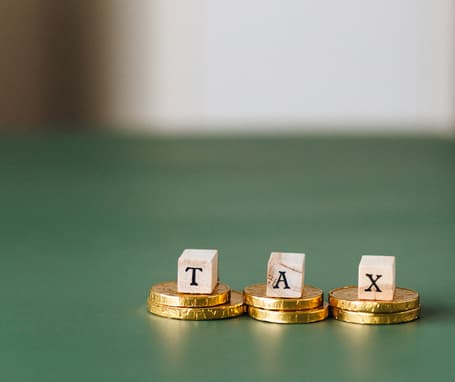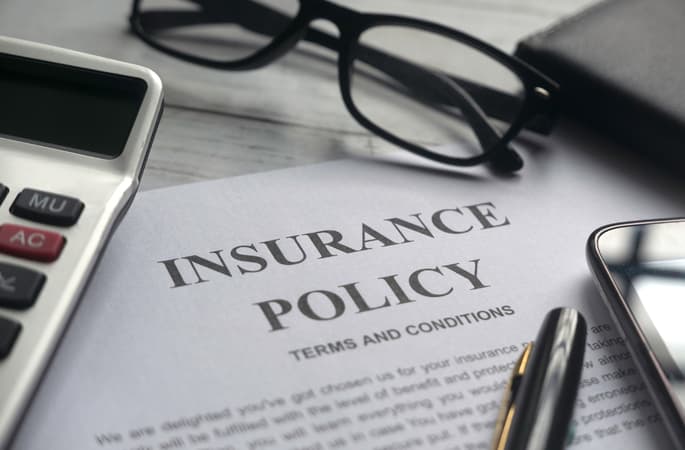Jump to a section
Understanding tax obligations and planning can be crucial yet complex for small and medium enterprises. This guide covers everything small business owners need to know about taxes in the UK, from the key types of taxes applicable, tax deductions and allowances to claim, navigating compliance and deadlines efficiently, and keeping up with the latest tax changes relevant for small businesses.
Key takeaways
- There are several types of taxes applicable to small businesses including income tax, national insurance, VAT, and corporation tax. Understanding what taxes you need to pay is essential.
- Small businesses can reduce tax bills by claiming eligible deductions for expenses, capital allowances for assets, and utilising tax relief schemes. Keeping meticulous records is key.
- Staying on top of important tax deadlines, maintaining accurate bookkeeping, and ensuring compliance with regulations through good record keeping helps avoid penalties.
- Implementing tax planning strategies like minimising liabilities, choosing tax-efficient business structures, and working with tax professionals can ensure financial stability while meeting legal requirements.
Different types of taxes applicable to small businesses
If you run a small business, it’s really important that you know about the taxes you have to pay. Let’s break down the main taxes that small businesses usually deal with:
Income tax
Income tax is a basic tax for small businesses. It’s a fee on the money your business makes. The rules about how much you pay can change, so it's good to keep an eye on them.
National insurance
There are different types of National Insurance and the amount you pay will depend on your employment status, how much you earn, and how many employees you have.
For yourself as a business owner:
- You will likely need to pay Class 2 National Insurance contributions which are a flat rate paid regularly if you are self-employed. The current rate is £3.15 per week.
- If you have annual profits over £9,880 you will also need to pay Class 4 National Insurance which is a percentage of your profits. This has a tiered rate up to 9% on profits above £50,270.
For employees:
-
You will need to pay employer National Insurance contributions for any employees you have. The current rate is 15.05% on earnings above £9,100 per year. This is in addition to deducting employee NI contributions from their salary which is currently 13.25% on earnings above £9,100.
So in summary, as a business owner you'll likely need to pay:
- Class 2 and/or Class 4 contributions for yourself
- Employer contributions for employees And also deduct employee contributions from salaries to pay over to HMRC.
The rules can be complex so it's worth getting professional advice if you are unsure. But essentially you'll end up paying NI in two capacities - for yourself and your business profits, as well as employer NI for staff.
VAT
VAT (Value Added Tax) is a tax added to most products and services sold by VA-registered businesses. If your VAT taxable turnover is greater than £85,000 for the last year, you must register for VAT.
Corporation tax
If you’re a limited company, this tax is applied to your profits after salaries and other business expenses have been deducted.
Tax deductions and allowances for small businesses
Small businesses can reduce tax bills by claiming eligible tax deductions for allowable expenses, capital allowances for assets, and making use of tax relief schemes.
Common tax deductions and expenses small businesses can claim
Identifying common deductions and expenses you can claim is essential.
Here are some areas where you can claim back, and tips on the documents needed to ensure your claim is successful:
- Office rent and utilities: Make sure you document all payments related to rent and utilities (e.g. water, electricity) as you can claim back on these. Keep copies of lease agreements and utility bills as proof.
- Wages: Record all employee wages, including salaries, bonuses, and benefits. Ensure these are all compliant with laws of employment and working hours.
- Professional services: Document payments made for services such as legal, accounting, or consultant fees. Keep invoices and contracts to support these claims.
- Advertising costs: Save receipts and invoices for advertising expenses, whether it's online ads, print materials, or other promotional activities. This can include costs related to social media advertising or traditional marketing methods.
- Home office deduction: If you use part of your home for business purposes, you may be eligible for a home office deduction. Keep records of your home-related expenses and calculate the portion used for business activities.
Make sure you keep detailed records of all your business expenses. You could use accounting software or another system to track and categorise everything.
Exploring tax relief schemes and incentives
Discovering potential tax relief schemes and incentives is a smart move for any small business. To effectively navigate this terrain, consider the following steps:
- Stay informed: Dedicate regular time to research government initiatives. Visit official websites, subscribe to newsletters, and stay connected with industry updates.
- Tailor your approach: Governments often craft schemes to bolster specific sectors, and being aware of these tailored benefits could translate into substantial savings for your business.
- Supercharge savings with R&D tax credits: If your business is into research and development, explore these credits. By keeping careful records and working with tax professionals, this is a great opportunity to maximise tax relief.
- Go green: Investigate incentives related to eco-friendly investments or green tech. From tax credits to deductions, these incentives not only benefit the environment, but potentially your bottom line too.
Overview of capital allowances and tax-saving strategies
Understanding capital allowances and tax-saving strategies can be a game-changer for small businesses. Here's a simple breakdown:
- Identify eligible assets: Make a list of things you own that can get you tax breaks - like equipment, machinery, or vehicles. Knowing what qualifies is the first step to saving big on taxes.
- Master Annual Investment Allowance (AIA): Keep an eye on AIA limits; they decide your max yearly claim. Time your big buys to get the most from this allowance and boost your tax savings.
- Write Down Allowances(WDAs): For items outside AIA limits, get familiar with WDAs. They let you claim tax relief on what's left of an asset's value over time. Mix quick tax wins with long-term savings.
- Pool low value assets: Combine smaller assets for simpler accounting. It saves time and maximises tax benefits by allowing you to claim allowances in one go.
- Lease vs. purchase: Weigh the tax pros and cons of leasing vs. buying. Leasing can offer good capital allowances and flexibility. Figure out what suits your business best for smarter financial decisions.
- Talk to a pro: Tax rules are tricky. Chat with a tax pro to understand current allowances and any rule changes. They'll guide you through the tax maze, making sure you're on top of things.
Navigating tax compliance and deadlines
Securing your small business's financial health starts with understanding tax compliance and deadlines. Staying on top of your tax responsibilities is key to avoiding penalties and ensuring a smooth operation.
Important tax deadlines for small businesses
Stay on top of your taxes with these key deadlines:
- Self employed? File your online tax return by 31 January.
- Limited company? Know your specific deadlines for income tax, VAT, and payroll taxes.
Maintaining accurate records and bookkeeping
Boost your business success with these bookkeeping tips:
- Track income, expenses, and transactions meticulously.
- Use accounting software for efficiency or hire a professional bookkeeper.
- Ensure records are up to date and compliant for smooth tax filing.
Tips for staying compliant with tax regulations
Staying compliant with tax regulations can be challenging, but it's necessary to avoid legal problems and financial penalties. Here are a few tips to help you stay on the right side of the law:
- Keep track of all your expenses and receipts
- Keep your personal and business finances separate
- Consult with a tax professional or accountant
- Stay informed about changes in tax laws and regulations
- File your tax returns on time
Tax planning strategies for small businesses
Tax planning is a critical part of running a small business, as it helps minimise tax liabilities and maximise profits. By implementing effective tax planning strategies, you can ensure your business stays financially stable while meeting all legal requirements. Here are a few key strategies to consider:
Effective tax planning to minimise liabilities
One of the most important aspects of tax planning is finding ways to minimise your tax liabilities. This can be done through various means, such as taking advantage of allowable deductions, credits, and exemptions. By carefully analysing your business expenses, you can identify areas where you may be eligible for tax savings.
Understanding tax-efficient business structures
Another consideration is understanding tax-efficient business structures. Choosing the right legal structure for your business can have a significant impact on your tax obligations. For instance, forming a limited company may provide certain tax advantages, such as lower tax rates and increased flexibility in managing your finances.
Working with tax professionals and accountants
Working with tax professionals and accountants can greatly benefit your small business. These professionals have the expertise and knowledge to navigate the complex world of taxation, ensuring you stay compliant with the latest regulations and take advantage of available tax-saving opportunities. They can help you with tasks such as filing tax returns, managing payroll taxes, and providing guidance on tax planning strategies tailored to your specific business needs.
Tax considerations for different business types
When it comes to small business taxes, it's important to understand that different types of businesses have different tax obligations and considerations.
Tax obligations for sole traders and partnerships
Sole traders and partnerships are considered unincorporated businesses. As a sole trader, you are personally responsible for all aspects of your business, including its taxes. You will need to register for self-assessment with HM Revenue & Customs (HMRC) and pay income tax and National Insurance contributions on your business profits. Similarly, partnerships are taxed as individuals, with each partner responsible for their share of the tax liability.
Tax considerations for limited companies
Limited companies, on the other hand, are separate legal entities from their owners. This means they have their own tax obligations. Limited companies are subject to corporation tax on their profits. Company directors and shareholders may also receive a salary or dividends, which have additional tax implications.
Keeping up with small business tax changes
As a small business owner, it's vital to stay up-to-date with the latest changes in tax legislation to ensure compliance and make informed financial decisions. Here are some key areas to focus on:
Latest updates and changes in small business tax legislation
Tax laws and regulations can change frequently, so it's necessary to stay informed about any updates or changes that may impact your small business. Regularly check government websites, tax publications, and seek advice from tax professionals to ensure you are aware of any amendments that could affect your tax obligations.
Key government initiatives affecting small business taxes
The government introduces various initiatives and incentives aimed at supporting small businesses. Stay updated on schemes such as the Small Business Rate Relief, Research and Development Tax Credits, or the Apprenticeship Levy, as they can help reduce your tax liabilities and provide opportunities for growth.
How to stay informed and adapt to tax law amendments
To keep up with tax law amendments, consider subscribing to newsletters, attending tax seminars, or joining industry-specific associations. Engage with professional accountants or tax advisors who can provide expert guidance tailored to your business needs.
The bottom line
Understanding your tax obligations and planning efficiently are key to the success of any small business. By being aware of the different taxes you need to pay, keeping accurate records, claiming eligible deductions, allowances and reliefs, working with professionals, and staying up-to-date with the latest regulations, you can ensure compliance and make informed decisions to strengthen your bottom line.
Though taxes may seem complex, taking the time to get organised, seek expert help when needed, and staying proactive can save you significant money while avoiding issues down the road. With the right knowledge and preparation, you can tackle your small business taxes effectively.
This does not constitute financial or tax advice. If you want to understand any tax relief you could benefit from in detail, contact your financial advisor or accountant.











